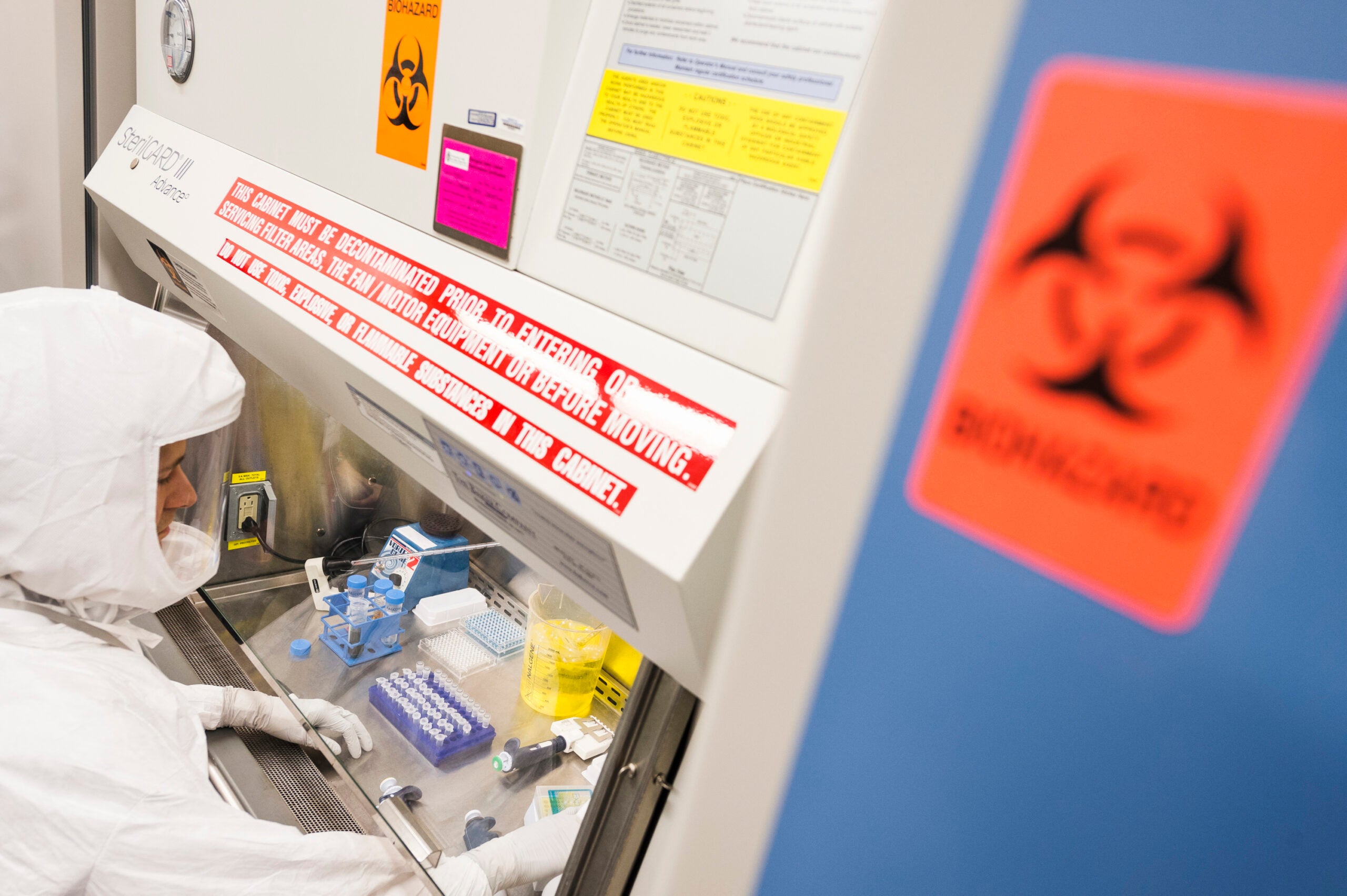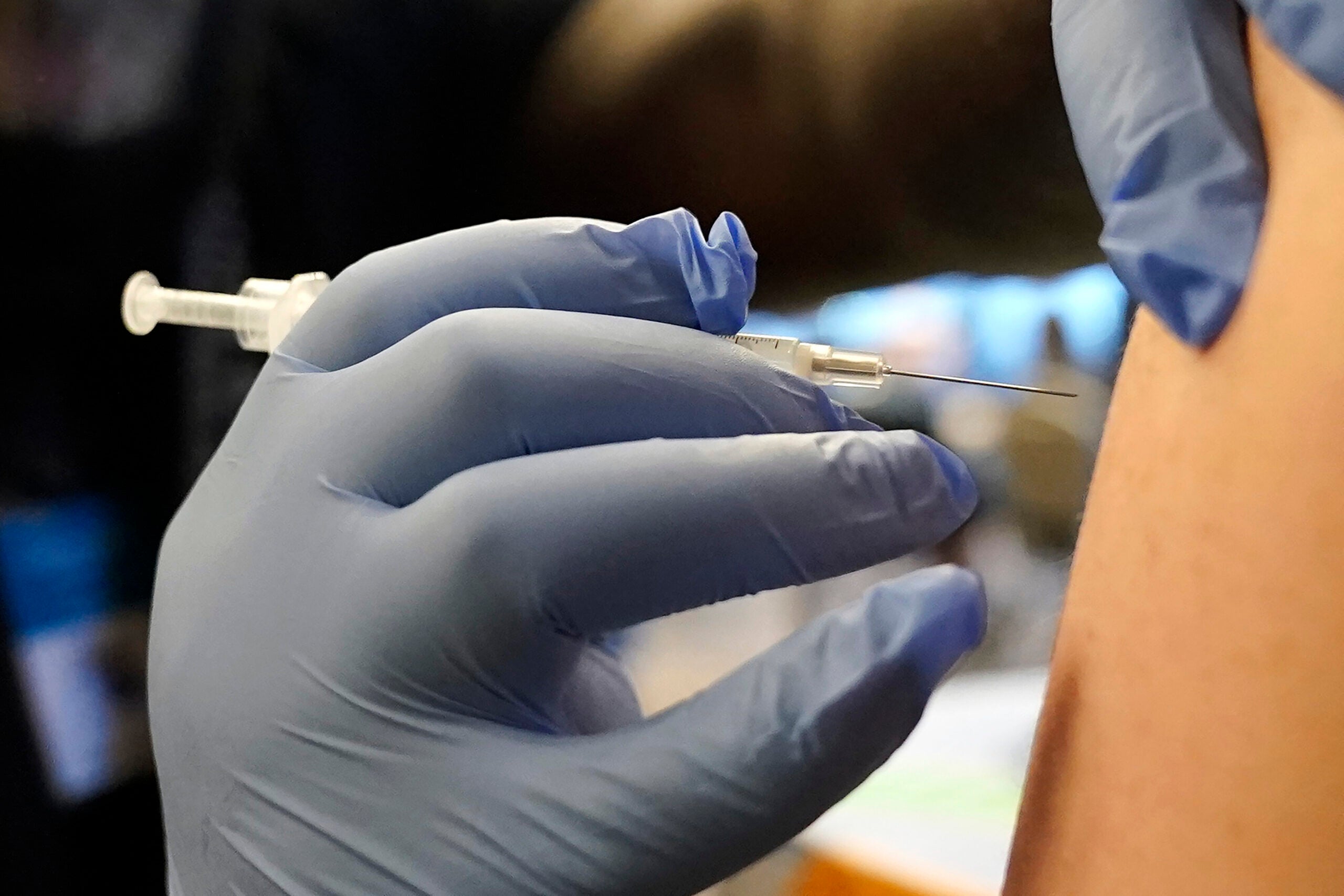Research is showing that contrary to prior belief, allergic asthma and respiratory allergies are not major risk factors for acute COVID-19 symptoms in the way other health issues are.
That finding, recently highlighted in the Journal of Allergy and Clinical Immunology, doesn’t mean that people with either condition aren’t susceptible to COVID-19, but it could be reassuring to asthmatics worried that they’re at greater risk, said Dr. Daniel Jackson, an associate professor of pediatrics and medicine at the University of Wisconsin School of Medicine and Public Health.
Jackson was the lead investigator of the study featured in the journal, which revealed that a protein found on the shell of cells is less prevalent in patients with either asthma caused by allergies, or respiratory allergies caused by environmental factors such as pollen or pet dander.
Stay informed on the latest news
Sign up for WPR’s email newsletter.
COVID-19 is a respiratory virus that causes severe viral pneumonia. In severe cases, the illness can cause respiratory failure, sometimes fatally. Along with older age, hypertension, diabetes, cardiovascular disease, tobacco exposure and chronic obstructive pulmonary disease, the Centers for Disease Control and Prevention cites asthma as a factor that could lead to a severe case of COVID-19.
Viruses need to get inside cells to make copies of themselves. The COVID-19 virus accesses respiratory cells via a specific protein, ACE2. More ACE2 proteins on the cell make it easier for the virus to get inside, and this protein is more readily found on the cells of smokers, diabetics and people with hypertension.
Jackson said exposing someone to an allergen resulted in fewer of those proteins on respiratory cells. He also said more research needs to be done to determine whether these proteins make a difference in risk of infection and risk of severe infection.
Early reports from asthma specialists in China that didn’t list asthma as a major risk factor for severe COVID-19 were unexpected, because people with asthma tend to have a greater risk of infections that can lead to pneumonia, Jackson said.
“This really surprised us … given the fact that patients with allergies and allergic asthma tend to have more trouble with respiratory viruses,” he said.
He also noted that asthma was a huge risk factor for severe disease in H1N1 flu cases in 2009.
“It may not be that asthma is protective (in the case of COVID-19), but it doesn’t seem to increase your risk like we would have anticipated,” he said.
Wisconsin Public Radio, © Copyright 2025, Board of Regents of the University of Wisconsin System and Wisconsin Educational Communications Board.



